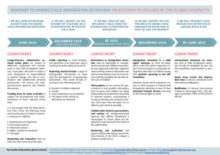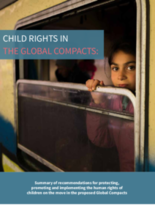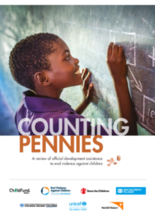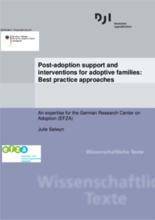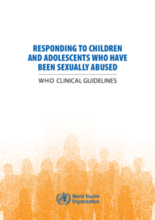Displaying 2991 - 3000 of 4431
This roadmap to ending the detention of children in immigration from the Initiative for Child Rights in the Global Compacts outlines the commitments, examples of practice, reference documents, and guidelines for each stage of the strategy from June 2019 to June 2025.
This four-page document is a synthesis of the working document entitled “Child Rights in the Global Compacts: Recommendations for protecting, promoting and implementing the human rights of children on the move in the proposed Global Compacts,” drafted by the Steering Committee of the Initiative for Child Rights in the Global Compacts.
This report is the result of an investigation into the amount of official development assistance (ODA) that is targeted at ending violence against children, either as the main focus or as part of a broader programme.
This package is a compilation of resources and new evidence for case management and supervision of humanitarian workers in responding to child protection situations.
This chapter from the book 'A long way to go: Irregular migration patterns, processes, drivers and decision-making,' discusses the global trends in the migration of unaccompanied minors in recent years.
Violations of children’s rights remain tragically common across the world. This entry from Our World in Data presents data on this topic.
This newsletter issue from Senator Linda Reynolds of Western Australia, written in conjunction with Kate van Doore of Griffith Law School, was written in preparation for the Australian Parliamentary inquiry on modern slavery and describes the ways in which orphanage trafficking constitutes modern-day slavery.
This rapid literature review was commissioned by the German Research Centre on Adoption (EFZA) located at the German Youth Institute in Munich (Germany). The overall aim of the review was to consider the support needs of domestic and intercountry adoptive families and the evidence for effective interventions. Step-parent, relative and domestic private adoptions were excluded.
This guideline aims to provide evidence-based recommendations for quality clinical care for children and adolescents who have, or may have, been subjected to sexual abuse, in order to mitigate the negative health consequences and improve their well-being.
This brief summarises key findings of a qualitative study of the family strengthening approach of the Isibindi model.

